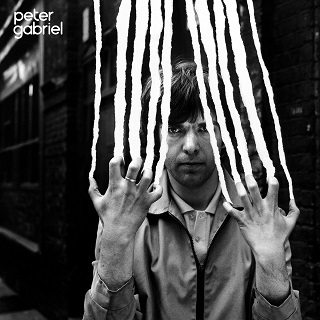Fans who’ve devoured his liner notes, interviews and magazine articles over the years know that Elvis Costello doesn’t always let the truth get in the way of a good story. For example, the manor of opulent decadence depicted in “Man Out Of Time” has been said to have been inspired by the stand-in for Buckingham Palace in the Beatles’
Help!, the house where the Profumo affair occurred, and in
Unfaithful Music & Disappearing Ink, his official autobiography, the location where he filmed the promo clip for “Good Year For The Roses”. He admits such embellishment elsewhere, such as how his anecdote about himself, his parents, and the cat all took notice the first time “Penny Lane” played on the radio. (His parents had already split up by then, and they no longer had a cat.)
Still, Unfaithful Music & Disappearing Ink is an engrossing read, diverting from chronology just when you think it’s going to stay linear. Moving around from era to era actually works, using stories about his father’s musical career and his grandparents’ wartime travails to spur other memories and accounts. While he insists that he was never a confessional songwriter, and he doesn’t explain the genesis of all of his most famous songs, key lines do pop up in unexpected places, and when he explains how a cashier at a grocery store inspired “Alison”, you believe it.
The author himself narrates the unabridged audiobook, breaking into accents or impersonations when the text calls for it. While often accused of being pretentious or glib, even by his own fans, it is sometimes heartbreaking to hear him recount his own infidelities, weaknesses, and failures, as well as those of his father, just as his excitement over discovering a wonderful record in his youth and encountering musical heroes in his adulthood is real. Much of his early image is ascribed to a character he found himself playing, thinking that “bad” behavior would cause people to leave him alone to do his work. In the end, only the sales charts left him alone, and he spent the second decade or so of his fame immersed in self-loathing and recrimination for the damage he did to his first wife and their son. Having survived all that and still allowed to make music, he seems grateful for his family and friends, and slings very few arrows at any remaining grudges.
A narrative that references so many songs demands a musical companion, and some stalwart individuals have gone so far as to curate Spotify playlists that cover every band and artist mentioned. The author wisely compiled a two-CD set, Unfaithful Music & Soundtrack Album, that touches on many of the compositions discussed in the book. As it includes most of those hit songs from earlier best-ofs, it could be considered a rehash of Girls Girls Girls, the Costello-curated double disc from 1989 that pulled in tracks from his first decade with the Attractions. This one isn’t quite as random chronologically, but it does sample nearly every one of his albums, with only a few alternates to deviate from the typical. Those of us purchasing yet another disc with “Alison” and “Watching The Detectives” will shoot right to the end of the second disc for “April 5th”, a surprising collaboration with Roseanne Cash and Kris Kristofferson, and “I Can’t Turn It Off”, a demo from 1975 with lyrics that would end up in “Watch Your Step” and “Sulky Girl”. A hidden track features so-called “Sketches” from the memoir, anecdotes about Paul McCartney, Lou Adler, and the Royal Albert Hall left out of the manuscript. But as Costello compilations go, this one has more purpose than most others. And of the songs chosen, there’s nary a clunker to be skipped.
Elvis Costello Unfaithful Music & Soundtrack Album (2015)—4



:format(jpeg):mode_rgb():quality(90)/discogs-images/R-6077490-1410466830-9985.jpeg.jpg)

